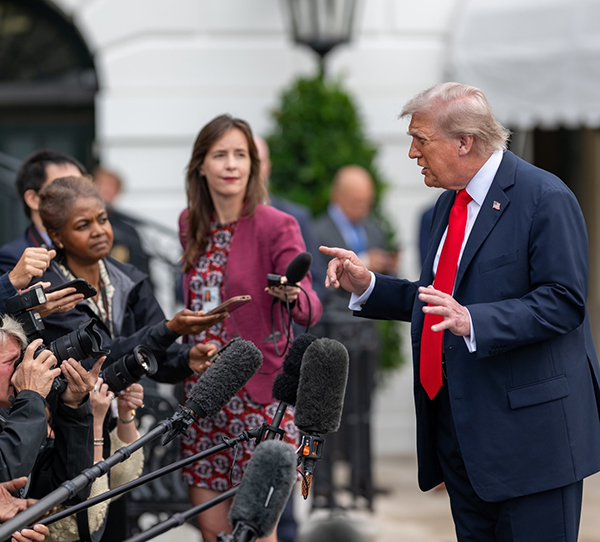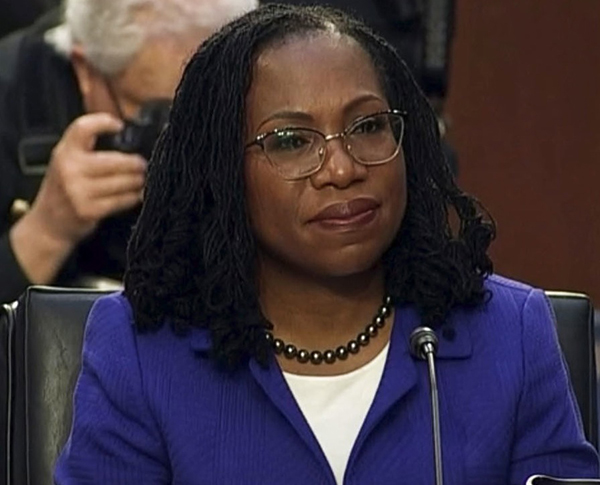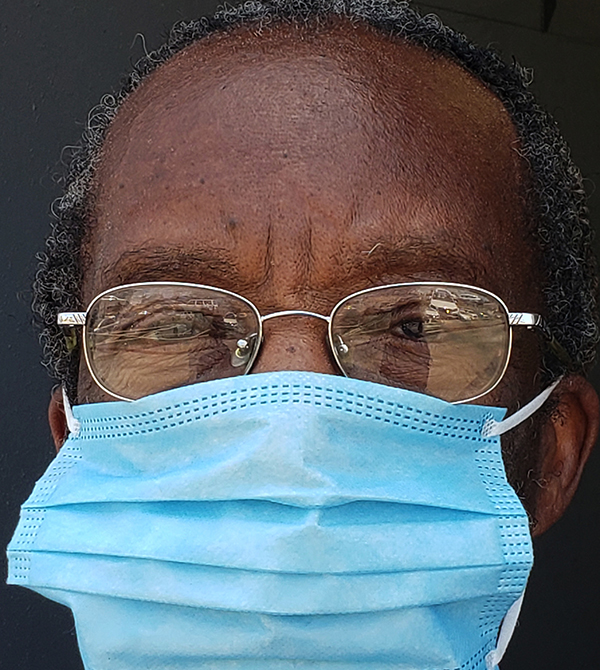THE HUTCHINSON REPORT: Trump always meant to use second term for his benefit

President Donald Trump addresses the media. Columnist Earl Ofari Hutchinson writes that Trump always intended to use his second term to make money for himself and his family.
Courtesy photo
By Earl Ofari Hutchinson
Contributing Columnist
“So, the fact that the Defense Department is getting a gift, free of charge, of a 747 aircraft to replace the 40- year- old Air Force One, temporarily, in a very public and transparent transaction, so bothers the crooked Democrats that they insist we pay top dollar for the plane.”
President Donald Trump, in another pro forma late night post on his Truth Social Media in April, managed to kill three birds with one stone. One, he lambasted his favorite whipping boy, the Democrats. Two, he claimed that his acceptance of a jumbo jet from the Qatari royal family was transparent and of course totally legal.
This is the first of a two-part series on President Trump’s profiteering from the presidency, excerpted from Hutchinson’s latest work “Trump for Sale” (Middle Passage Press).
But it was the third bird he slew that was the most telling. He depicted the gift plane as a cost-saving necessity for the government. The message: There was absolutely nothing in the gift that could be construed as profiting him.
Trump conveniently downplayed three things. The first was that the luxury plane would not remain government property in perpetuity but when he left office in 2028 the plane would go with him to his planned presidential library in Palm Beach, Florida.
The second was that there was already work being done on the upgrade of Air Force One. The work was scheduled to be completed before he left office. The third was that he had scheduled a presidential visit to Qatar to schmooze with the royal family and almost certainly prospect for more business deals that would be graced by the government.
The plane grab only made news primarily because it was a foreign government that was the giftee and it directly involved one of the most publicly identifiable presidential trademarks, Air Force One. That was not the case with the seemingly endless other Trump business ventures that had carried the direct or indirect stamp of the government and taxpayer purse tacked on it.
Trump’s luxury airplane grab was in a sense one more step in fulfilling his vow to not be as he called himself “stupid” for not cashing in on the presidency during his first term. Of course he was more than a little disingenuous in his protest about not making money in his first term. He routinely made money, lots of it, by charging inflated sums to patrons and guests for their stays at his hotels, resorts and golf courses.
That was especially true with foreign diplomats and government big shots. Many of them were more than willing to pay the top dollar charge for a round of golf at one of his resorts or a stay. at one of his hotels.
That was small potatoes compared to what Trump had in mind to pocket for himself and his family the second go round. By the end of his first 100 days in office he had cashed in on the office more than any other president in history. There was the crypto-coin profiteering, the Middle East and Asian golf club and resort deals.
There was countless farming out of his name stamped on various for sale or auction items, all for a hefty fee. There was the open court of a slew of billionaires to pump unlimited dollars into various Trump-related campaign outfits. Trump made sure the dollar hustle didn’t end at his door.
His sons were busy cutting their own development deals with wealthy Middle East investors and governments. First Lady Melania wasn’t left out of the money grab. A very willing and eager Amazon boss Jeff Bezos cut a $40 million check to her for a documentary on her.
Meanwhile his sons, Eric and Donald Jr., were again his designated surrogates to run the Trump organization. They busily sought and cut deals for varied Trump business dealing that included partnering with foreign governments on the building of Trump resorts, delving deeper into crypto currency sales as well as an assortment of other play-for-pay Trump product endorsements, and soliciting Trump campaign fundraising operations from super wealthy investors and heads of state.
When queried about his relationship to his Trump organization, Trump repeatedly insisted that he was not involved in its day-to-day decisions. That may have been true.
However, the trust he established continued to reap a handsome profit. At the same time, he quietly continued to promote his resorts, Trump-endorsed merchandise and the family’s crypto ventures, often from his account on Truth Social.
In the early months of his second White House go round, Trump, as he liked to say to the critics of his wheeling and dealing, couldn’t be bribed. His point was that he was so well-heeled financially and with a portfolio that bulged with real estate, hotels, resorts, golf courses and varied other properties that he was already hyper wealthy.
He further fluffed off any talk of obsessive profiteering with his by then stock retort. “Money was never a big motivation for me, except to keep score. The real excitement is playing the game.”
That line was encoded in his best-selling signature work, “The Art of the Deal.”
Trump fully intended to live up to that signature line from his perch in the Oval Office.
Earl Ofari Hutchinson is an author and political analyst. “His latest book is “Trump for Sale” (Middle Passage Press).





